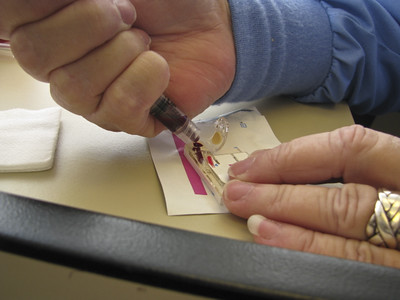Can an Equation to Help Determine Kidney Health Be Racist?
By Jill Neimark,
Undark Magazine
| 01. 26. 2022
A reckoning in medicine has upended the use of race in calculating kidney function, spurring institutional change.
"creatinine" by Lori Greig is licensed under CC 2.0
On the morning of June 19, 2020—Juneteenth, now a federal holiday — students in the Internal Medicine Residency Program at the University of California, Davis gathered for weekly rounds. Rachael Lucatorto, the associate program director, opened the session by playing a recording of the Emancipation Proclamation. She then jumpstarted a discussion about racism in medicine.
For Bisrat Woldemichael, then a fourth year medical student at UC Davis and now a resident at Emory University, it was a chance to speak about racism in kidney care, or nephrology. Black Americans experience kidney failure nearly four times as often as White Americans. And yet they are less likely to receive timely referrals to a specialist.
One big problem, Woldemichael remembers pointing out that June morning, was that a common tool for measuring kidney health factored in race. “Racism is very obviously present in a lot of ‘objective’ data in medicine,” she says. Many equations and guidelines adjust for race, and while it is sometimes a convenient proxy, critics say...
Related Articles
By Julia Métraux, Mother Jones | 02.10.2026
Why was Jeffrey Epstein obsessed with genes? In the latest tranche of Epstein records and emails made available by the Department of Justice, themes of genes, genetics, and IQ—alongside more explicit threads of white supremacy—keep cropping up, often adjacent to Epstein’s...
By Ava Kofman, The New Yorker | 02.09.2026
1. The Surrogates
In the delicate jargon of the fertility industry, a woman who carries a child for someone else is said to be going on a “journey.” Kayla Elliott began hers in February, 2024, not long after she posted...
By Dan Barry and Sonia A. Rao, The New York Times | 01.26.2026
Photo by Gage Skidmore from Peoria, AZ, United States
of America, CC BY-SA 2.0, via Wikimedia Commons
Late last month, a woman posted a photograph on social media of a purple hat she had knitted, while a black-and-white dog...
By Shobita Parthasarathya, Science | 01.22.2026
These are extraordinarily challenging times for university researchers across the United States. After decades of government largess based on the idea that a large and well-financed research ecosystem will produce social and economic progress, there have been huge cuts in...




